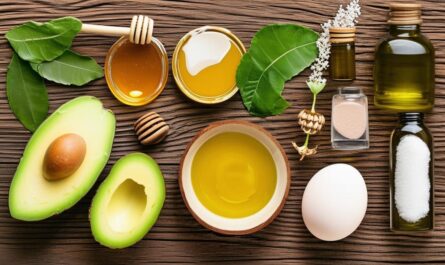Understanding Oily Hair Causes
Stress, hormones, genetics, and humidity are key factors in oily hair issues. During puberty, hormonal changes stimulate sebaceous glands to produce excess oil. Some people are genetically predisposed to oily hair. Humidity can exacerbate the problem by adding moisture to already oily strands.
Stress can trigger increased oil production through hormonal changes. This extra oil weighs down hair, making it appear limp and greasy. Common symptoms include:
- Shiny hair
- Heaviness
- Occasional itching or irritation
In some cases, excess oil can lead to dandruff or seborrheic dermatitis.
Daily shampooing isn’t always the solution, as it may strip natural oils and prompt more production. Experiment with your wash schedule and use proper technique:
- Gently massage shampoo into the roots
- Rinse thoroughly
- When conditioning, focus on the ends and avoid the scalp
- Choose products designed for oily hair and use them sparingly
Minimize heat styling and rough brushing, as these can stimulate oil production. If home remedies and over-the-counter products don’t help, consider consulting a dermatologist for professional guidance.
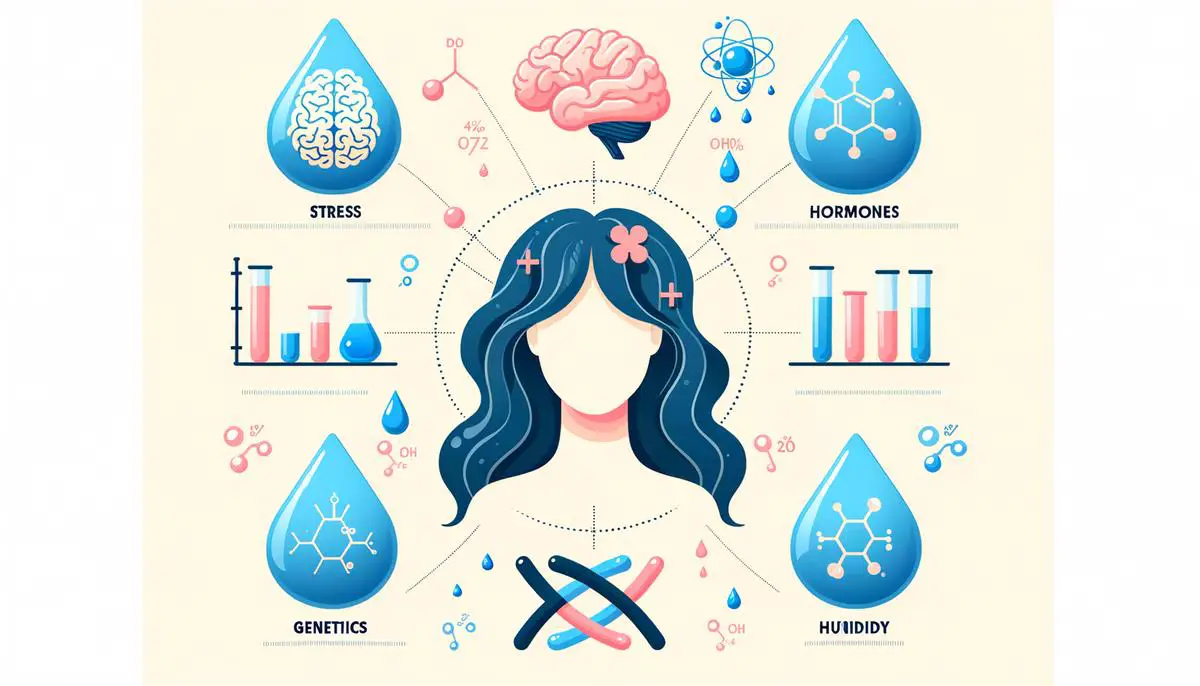
Effective Hair Care Routine
Creating an effective routine for oily hair involves selecting the right products and applying them correctly. Choose a lightweight, sulfate-free shampoo with balancing ingredients like tea tree oil or green tea extract. Massage a small amount into your scalp gently, avoiding vigorous scrubbing.
On non-wash days, use a lightweight, residue-free dry shampoo to absorb excess oil and add volume. Apply sparingly to prevent buildup.
Conditioning is important even for oily hair, but focus on the tips where moisture is needed most. Avoid applying conditioner to the scalp. Opt for lightweight or leave-in conditioners that hydrate without adding heaviness.
Choose products that balance oil production without weighing down your hair. Look for ingredients like:
- Aloe vera
- Witch hazel
These ingredients help manage oil and soothe the scalp. Finding the right routine may take some trial and error, but with patience, you can achieve healthy, balanced hair.
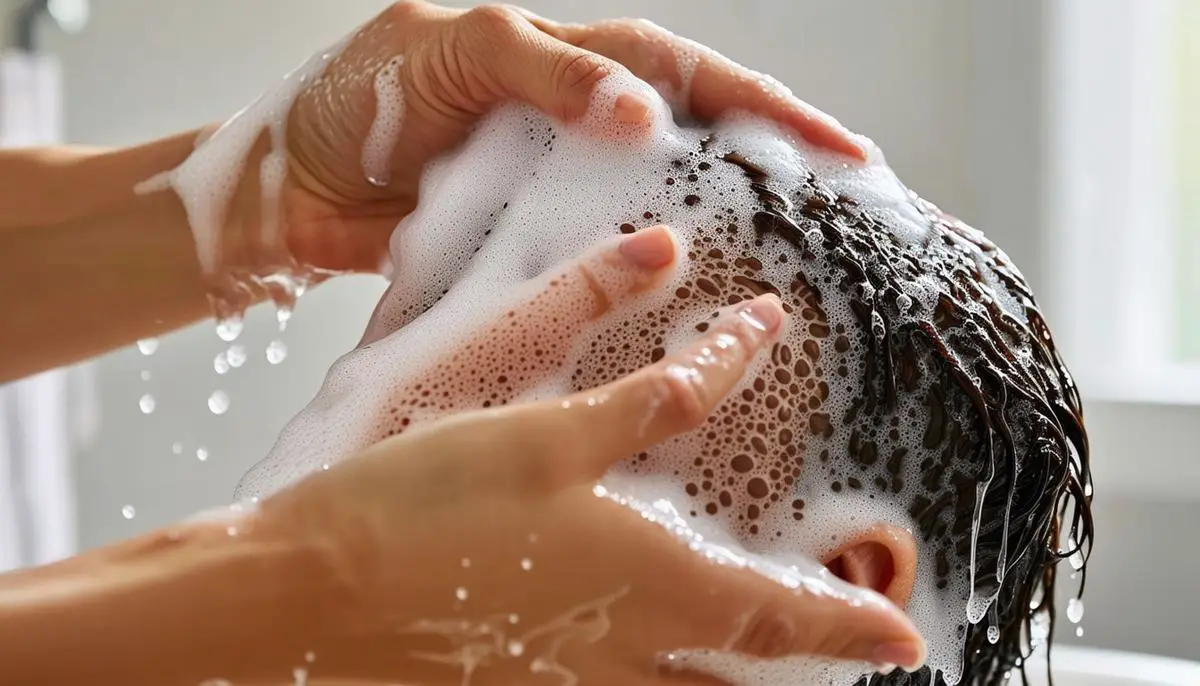
Scalp Care and Maintenance
Proper scalp care is crucial for managing oily hair. Brush gently and less frequently to avoid over-stimulating oil glands. Use a brush with natural bristles that glides through hair without causing friction.
After washing, pat your hair dry instead of rubbing vigorously. If using a hairdryer, keep it on a cool setting to prevent excess oil production and minimize damage.
Choose hair products wisely, avoiding those with harsh silicones or parabens that can weigh hair down. Look for shampoos and conditioners specifically formulated for oily hair, containing ingredients like:
- Tea tree oil
- Witch hazel
These ingredients help balance oil production and soothe the scalp.
Remember that each person's hair is unique. Treat your hair care routine as a process of finding what works best for you, aiming for long-term, sustainable results in managing oily hair.
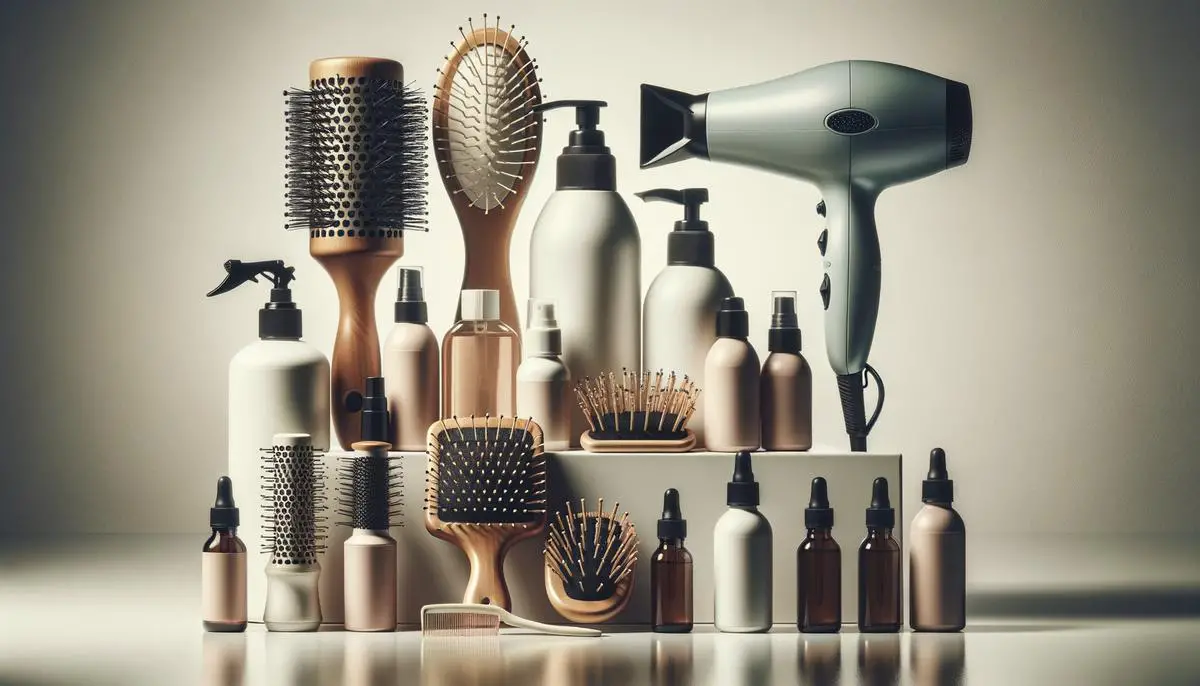
Natural Remedies and Treatments
Natural solutions can be effective in managing oily hair. Tea tree oil, known for its antiseptic properties, can be added to shampoo to help combat excess oil. A few drops mixed into your regular shampoo can enhance its oil-fighting abilities.
Aloe vera gel acts as a lightweight moisturizer for the scalp, helping to balance oil production. Apply it directly to the scalp or mix it into your conditioner for added benefits.
Apple cider vinegar (ACV) can help restore your scalp’s pH balance. Create a rinse by mixing one or two tablespoons of ACV with a cup of warm water. Use this after shampooing to help reduce oiliness and add shine to your hair.
These natural remedies can be easily incorporated into your routine. Be patient and consistent with their use to see the best results in managing oily hair while maintaining your hair’s natural luster.
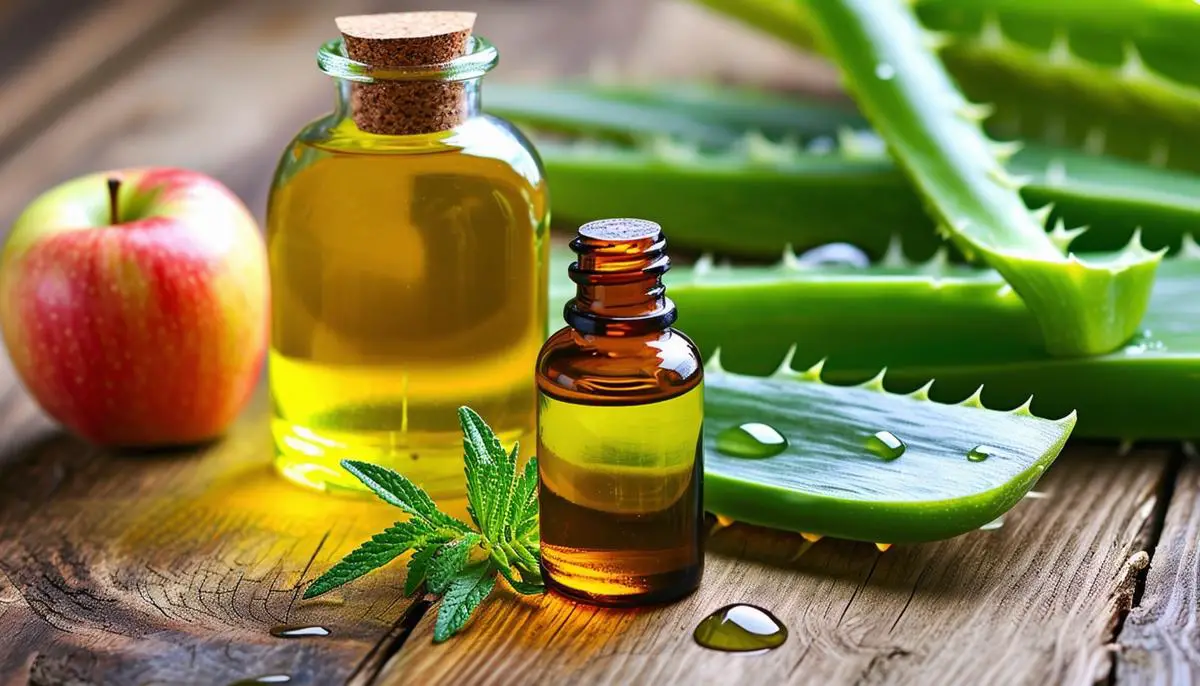
Diet and Lifestyle Impact
Your diet and lifestyle choices can influence your hair’s oil production. Diets high in sugars, refined carbs, and dairy may disrupt the balance of gut bacteria, potentially leading to increased oil production. Instead, focus on incorporating:
- More greens
- Lean proteins
- Foods rich in Omega-3 fatty acids
These foods can help regulate oil production and provide anti-inflammatory benefits.
Staying hydrated is essential for maintaining scalp health. Proper hydration helps detoxify the body and maintain balance, potentially reducing excess oil production.
Stress management is also crucial. High stress levels can lead to hormonal imbalances that increase oil production. Incorporate stress-reducing activities like:
- Yoga
- Walking
- Meditation
By making mindful choices in your diet and lifestyle, you can positively impact your scalp’s oil production and overall hair health. Remember, these changes work best when implemented consistently over time.

Embracing the journey of managing oily hair is about finding balance and understanding your hair’s needs. With patience and a thoughtful approach, you can transform those challenges into a routine that celebrates both health and vitality.
- American Academy of Dermatology Association. Hair washing: How often?
- Gavazzoni Dias MF. Hair cosmetics: An overview. Int J Trichology. 2015;7(1):2-15.
- Shin MK, Choi YH, Ahn JS, et al. Sebum, acne, skin elasticity, and gender difference – which is the major influencing factor for facial pores? Skin Res Technol. 2017;23(4):491-498.
- Carson CF, Hammer KA, Riley TV. Melaleuca alternifolia (Tea Tree) oil: a review of antimicrobial and other medicinal properties. Clin Microbiol Rev. 2006;19(1):50-62.
- Evron E, Juhasz M, Babadjouni A, Mesinkovska NA. Natural hair supplement: Friend or foe? Nutrients. 2020;12(8):2323.




